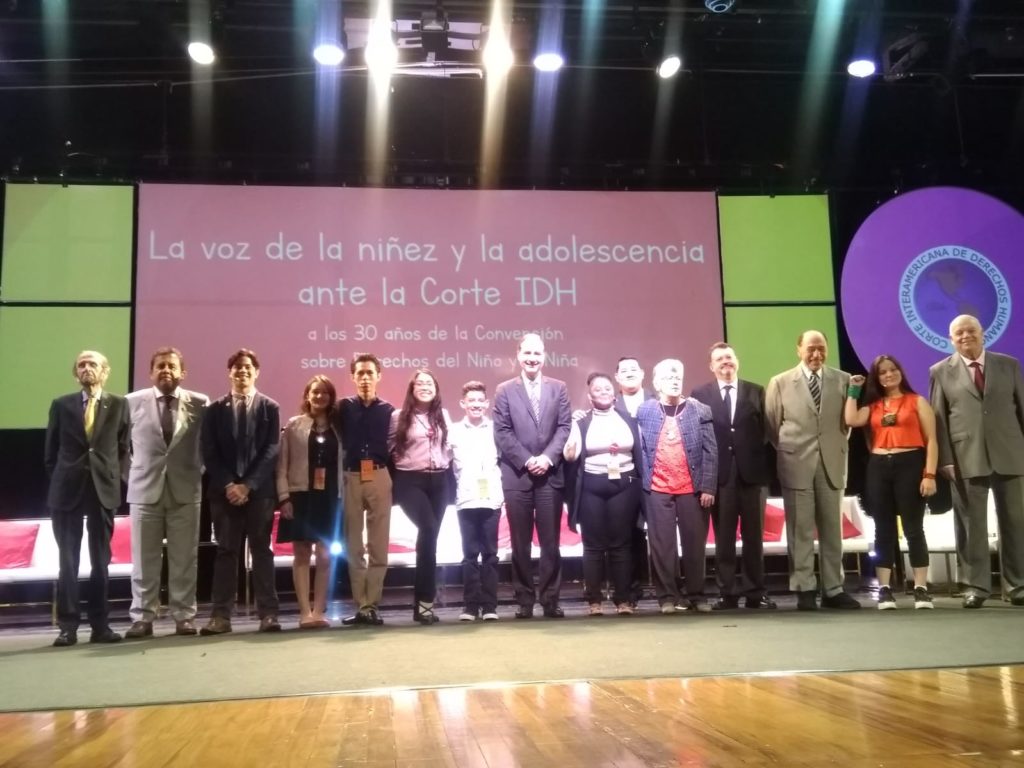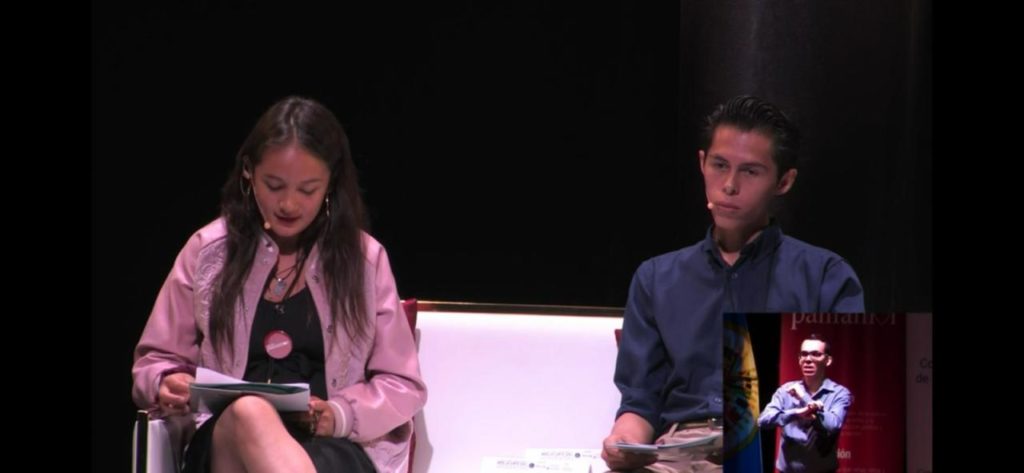 Today in celebration of the 30th anniversary of the UN Convention on the Rights of the Child, the Inter-American Court of Human Rights, the highest judiciary body in Latin America and the Caribbean, hosted a special session. Judges from the court heard directly from children affected by migration, incarceration and armed conflict.
Today in celebration of the 30th anniversary of the UN Convention on the Rights of the Child, the Inter-American Court of Human Rights, the highest judiciary body in Latin America and the Caribbean, hosted a special session. Judges from the court heard directly from children affected by migration, incarceration and armed conflict.
Two of the presenters, Hector from Nicaragua and Esperanza from Chile, traveled to Costa Rica this week along with members of CWS-supported Plataforma NNAPES. Plataforma NNAPES is the regional network formed to advocate for policy reforms that protect children affected by parental incarceration.
Hector and Ezperanza, who are children with incarcerated parents, testified today in front of the Court on behalf of the region’s 2.3 million children with incarcerated parents. Justice Ricardo Perez Manrique from Uruguay commented afterwards.

In their testimony, Hector and Esperanza shared their personal experience dealing with stigma,trauma and discrimination in school, the community and the prison system. “Many children end up dropping out of school because of the bullying they suffer and the complicity of teachers. We are told we will be like our incarcerated fathers”, they said. They explained to the judges that in most Latin American countries the government does not provide enough food and supplies in prisons which, in some cases forces the families and the children to work to provide for their incarcerated parents.
Hector and Esperanza also described the physical and psychological abuse they and most children experience when visiting their parents in prison.
On behalf of all children with incarcerated parents in Latin America, Hector and Esperanza asked the judges to do something to change prison visitation protocols including stopping invasive body searches of children, making governments responsible for meeting the basic needs of prisoners and providing access to re-entry programs. “Former prisoners need jobs,” Esperanza said. “Think in children when you make a decision. Avoid institutionalization of children of incarcerated parents and if not possible, do not separate siblings. Tell governments to use alternatives to imprisonment and to invest in family strengthening programs.”
To close their testimony, Hector and Esperanza said: “We are not criminals and we are treated like such, we committed no crime. Prison has an impact upon us and that impact is both physical and emotional. We do not wish anybody experience what we experience.”
Judge Perez Manrique responded by saying, “All of us who work in the criminal justice system know what you tell is accurate, it is truth. In the future, we are going to be more attentive to children when we make our decisions. Alternatives to incarceration should be considered for women with children convicted for small non-violent drug offenses. Thank you very much for your courage and testimony.”
This event and testimonies provided was made possible by the regional advocacy work done by Plataforma NNAPES. CWS is a founding member and a proud financial, technical assistance and advocacy ally of Plataforma NNAPES. www.nnapes.org
